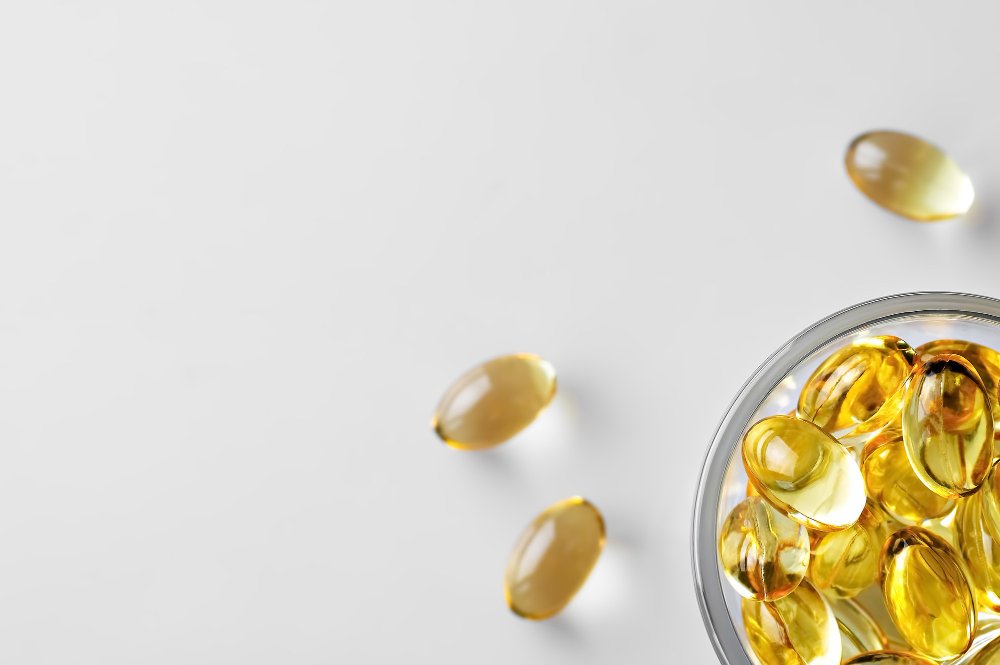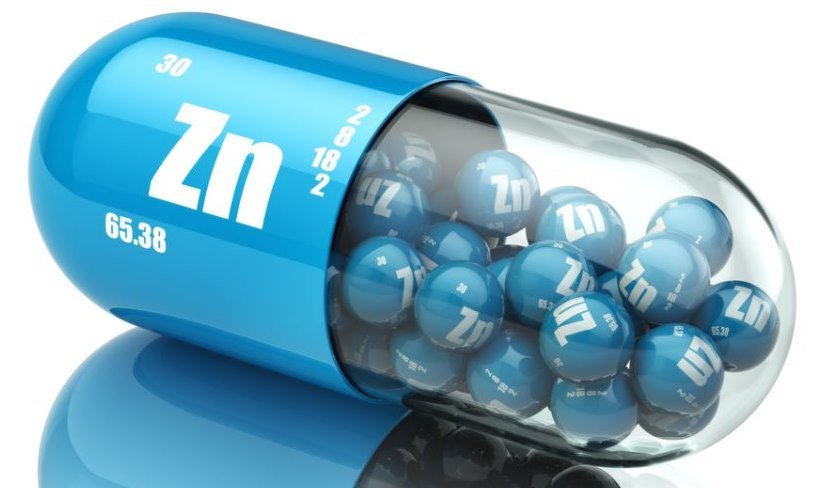Here are 30 health benefits of vitamin E and zinc:
Vitamin E Health Benefits:

- Powerful Antioxidant: Vitamin E acts as a potent antioxidant, protecting cells from damage caused by free radicals.
- Skin Health: Helps maintain healthy skin by protecting against UV damage and promoting cell regeneration.
- Wound Healing: Supports the healing process of wounds and cuts by aiding in tissue repair.
- Heart Health: May reduce the risk of cardiovascular diseases by preventing the oxidation of LDL cholesterol.
- Eye Health: Plays a role in maintaining good vision and may help prevent age-related macular degeneration.
- Immune Support: Supports immune function by enhancing the activity of white blood cells.
- Anti-Inflammatory: Exhibits anti-inflammatory properties, which can help alleviate symptoms of inflammatory conditions.
- Alzheimer’s Disease: Some studies suggest that vitamin E may help reduce the risk of Alzheimer’s disease and cognitive decline.
- Hair Health: Promotes healthy hair growth and may help prevent hair loss.
- Menstrual Pain Relief: May reduce menstrual pain and discomfort when consumed regularly.
- Muscle Strength: Helps maintain muscle strength and may aid in exercise recovery.
- Fertility: Supports reproductive health in both men and women and may improve fertility.
- Nerve Health: Protects nerve cells and may alleviate symptoms of neuropathy.
- Liver Health: Supports liver function and may help prevent liver damage.
- Cholesterol Management: May help lower LDL cholesterol levels and increase HDL cholesterol levels.
- PMS Symptoms: Some evidence suggests that vitamin E supplementation may help alleviate symptoms of premenstrual syndrome (PMS).
- Scarring: Helps minimize the appearance of scars and stretch marks.
- Sunburn Protection: Provides some protection against sunburn when applied topically.
- Cancer Prevention: Some studies suggest that vitamin E may help reduce the risk of certain cancers, although more research is needed.
- Respiratory Health: Supports lung function and may reduce the risk of respiratory infections.
- Parkinson’s Disease: Preliminary research indicates that vitamin E may help protect against Parkinson’s disease.
- Arthritis Relief: May provide relief from symptoms of rheumatoid arthritis and osteoarthritis.
- Diabetes Management: Helps improve insulin sensitivity and may aid in blood sugar control.
- Aging: Has anti-aging properties and may help delay the onset of age-related conditions.
- Brain Health: Supports cognitive function and may help prevent cognitive decline.
- Inflammatory Skin Conditions: Can help reduce inflammation and symptoms of conditions like eczema and psoriasis.
- Cataract Prevention: Some evidence suggests that vitamin E may help reduce the risk of cataracts.
- Bone Health: Helps maintain bone density and may reduce the risk of osteoporosis.
- Scar Prevention: When applied topically, may help prevent or reduce the appearance of scars.
- Stroke Prevention: Some studies suggest that vitamin E supplementation may reduce the risk of stroke.
Zinc Health Benefits:

- Immune Support: Plays a crucial role in immune function and helps fight off infections.
- Wound Healing: Supports the healing process of wounds and injuries.
- Cell Growth and Repair: Essential for cell growth, division, and repair throughout the body.
- DNA Synthesis: Required for DNA synthesis and proper cell replication.
- Skin Health: Helps maintain healthy skin by supporting collagen production and wound healing.
- Acne Treatment: Some evidence suggests that zinc may help reduce acne severity and frequency.
- Vision Health: Required for proper eye health and may help prevent age-related macular degeneration.
- Antioxidant Defense: Acts as an antioxidant and helps protect cells from oxidative damage.
- Fertility: Essential for reproductive health in both men and women and may improve fertility.
- Hormone Regulation: Plays a role in hormone regulation and may help balance testosterone levels.
- Growth and Development: Crucial for proper growth and development in children and adolescents.
- Metabolism: Supports proper metabolism of carbohydrates, fats, and proteins.
- Brain Function: Required for neurotransmitter synthesis and cognitive function.
- Mood Regulation: Some evidence suggests that zinc may help regulate mood and reduce symptoms of depression.
- Bone Health: Essential for bone formation and mineralization.
- Muscle Strength: Supports muscle growth and may enhance exercise performance.
- Diabetes Management: Helps regulate blood sugar levels and insulin sensitivity.
- Prostate Health: Some research suggests that zinc may help reduce the risk of prostate enlargement and prostate cancer.
- Hair Growth: Supports healthy hair growth and may help prevent hair loss.
- Thyroid Function: Required for proper thyroid hormone synthesis and function.
- Chronic Disease Prevention: Some studies suggest that zinc may help reduce the risk of chronic diseases such as heart disease and cancer.
- Inflammation: Has anti-inflammatory properties and may help reduce inflammation in the body.
- Gastrointestinal Health: Supports the integrity of the gastrointestinal lining and may help alleviate symptoms of digestive disorders.
- Allergy Relief: Some evidence suggests that zinc may help reduce symptoms of allergies and allergic rhinitis.
- Respiratory Health: May help reduce the severity and duration of respiratory infections such as the common cold.
- Liver Health: Supports liver function and may help protect against liver damage.
- Thyroid Health: Required for proper thyroid hormone synthesis and metabolism.
- Neurological Disorders: Some research suggests that zinc may help reduce the risk of neurological disorders such as Alzheimer’s disease and Parkinson’s disease.
- Chronic Fatigue Syndrome: Preliminary evidence suggests that zinc supplementation may help alleviate symptoms of chronic fatigue syndrome.
- Fetal Development: Essential for healthy fetal development during pregnancy and may reduce the risk of birth defects.




